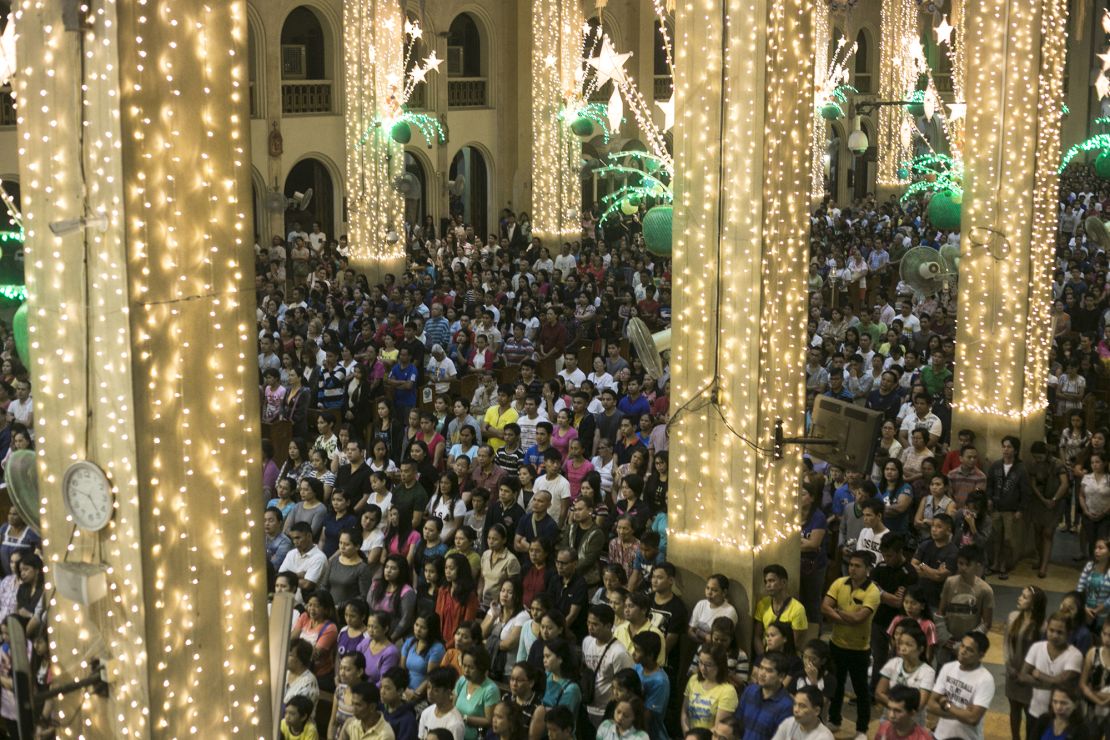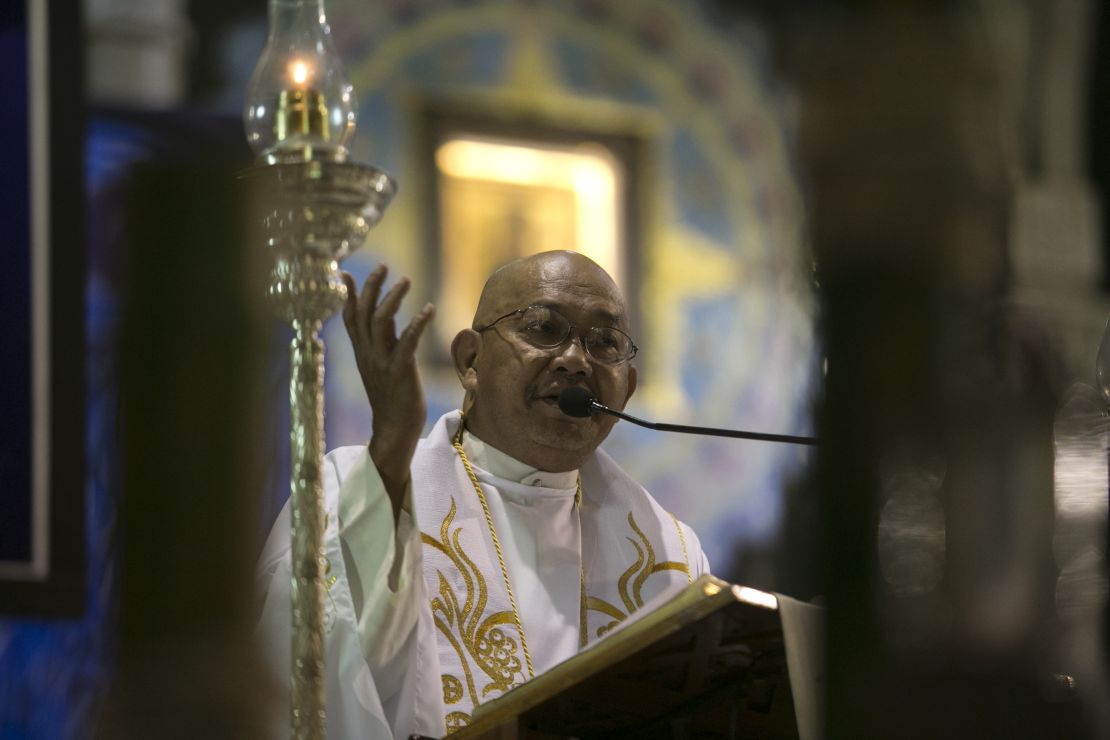Story highlights
Ordinary Filipinos have lost their way, says Father Amado Picardal
President Rodrigo Duterte: Catholic Church "full of shit"
“A life of sufferings, a life of killings. Is this the will of God?”
Father Amado Picardal does not flinch from the enormity of the question. As a priest in Metro Manila, he’s confronted nightly with the bloodshed of President Rodrigo Duterte’s drug war, which police say has now claimed more than 7,000 lives.
Picardal refuses to place that toll at God’s doorstep.
He says there is a “blood lust” in the country, encouraged by propaganda, deceit and a President with “a messiah complex.” At the Baclaran Church in the capital, he preaches against the killings.
Religion is an incredibly powerful force in this overwhelmingly Catholic country, and many of its adherents here attend Mass regularly.
“We have to put a stop to (the killings). Because if this continues it will destroy us as a country, as a nation,” Picardal says.
RELATED: ‘Knock and plead’ – On night patrol with Philippines police
Church ‘full of shit’
This criticism from within the Catholic Church has not gone unnoticed by the notoriously outspoken President, with Duterte delivering an escalating set of verbal attacks against the Church in recent weeks.
Last week, he called it “full of shit,” accusing bishops of corruption and womanizing during a speech to the family members of slain special forces.
According to CNN affiliate, CNN Philippines, he also said priests should help him by speaking out about addiction instead of attacking him on the issue of extrajudicial killings.
He brought up the child abuse scandals that have plagued the church, asking “What will you do about homosexuality in the seminary? What have you done to minors there?”
The Church still holds considerable influence in the Philippines, where government statistics show 80% of the country identifies as Roman Catholic.

Still, that has not dampened approval for the President’s campaign against illegal drugs.
A Social Weather Survey published in December found that 84% of respondents in the Philippines were satisfied with the administration’s anti-drug efforts.
RELATED: ‘Why I still support Duterte’
Troubled consciences
While many of the faithful approve of the crackdown on drugs, Picardal believes they oppose the killings themselves. He says policeman have begun to come to confession with troubled consciences.
Still, he concedes the drug war has its supporters. Some ordinary Filipinos, he thinks, have lost their way. “Our churches can be full, but the moral sense of right and wrong, it doesn’t seep deeply into the hearts and minds of people,” he says.
He ministers regularly to victims’ families. He’s no stranger to their pain, since his own mother was murdered more than 20 years ago by members of the Philippines’ constabulary. He went on to live a life devoted to activism:

In 1973, after dictator Ferdinand Marcos instituted martial law, Picardal was arrested while handing out fliers urging people to resist the regime. He was then imprisoned and tortured.
Later, he spent 16 years as a priest in the southern city of Davao, which is also the hometown of President Duterte.
While Duterte served seven terms as mayor, Picardal joined a commission that investigated extra-judicial killings in the city, the same types of killings that have now spread nationwide.
The priest sees the President as lacking in compassion.
“By the end of his term, there will be over 70,000 people killed in this drug war,” Picardal says, extrapolating the figures based on the current rate of killings.
“Most of them will be poor, most of them will be users, and the problems of poverty and country will still be there.”
Asked whether he fears for his own life, Picardal says no, there is nothing they can they do to him that’s worse than he has already faced. His experience with martial law, and the “people power” revolution that toppled it are forever written into his faith.
“In our darkest moments, martial law, we are never abandoned by God,” he says.
RELATED: Duterte’s crackdown – six stories from the front lines
He believes the Philippines is once again plunged into such darkness. But even now, as then, he has not lost hope.






